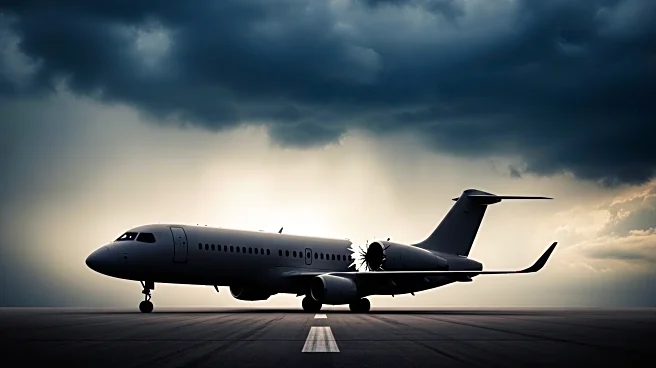What's Happening?
Spirit Airlines has filed for bankruptcy, citing significant issues with Pratt & Whitney engines and the termination of leases for numerous Airbus A320neo-family aircraft. The airline's financial troubles are exacerbated by weak demand for low-cost seats, intense competition, and a disruptive recall of Pratt & Whitney's geared turbofan engines. These engines have grounded hundreds of narrowbody jets since July 2023, affecting Spirit's fleet heavily. Spirit's Chief Financial Officer, Fred Comer, highlighted the critical need to optimize the fleet due to manufacturer defects in the engines, which have led to costly groundings. Additionally, Irish lessor AerCap terminated lease agreements for 36 Airbus aircraft scheduled for delivery between 2027 and 2028, and issued default notices for 37 aircraft in Spirit's existing fleet.
Why It's Important?
The bankruptcy filing underscores the challenges faced by ultra-low-cost carriers in maintaining operational stability amid technical and leasing issues. Spirit Airlines' reliance on the new-generation Pratt & Whitney engines has resulted in disproportionate service disruptions compared to competitors. The termination of leases by AerCap could have broader implications for Spirit's fleet management and financial health. The situation highlights the vulnerability of airlines to supply chain disruptions and leasing disputes, which can significantly impact their operational capabilities and financial viability.
What's Next?
Spirit Airlines has received court approval to continue operations while undergoing financial restructuring. The airline plans to maintain ticket sales, loyalty programs, and payments to employees and vendors. Spirit is also engaging with lenders and shareholders to secure potential financing necessary for restructuring. The company may pursue litigation against AerCap regarding the lease terminations and default notices. Spirit aims to emerge from bankruptcy with a stronger foundation, although it faces ongoing challenges in achieving profitability.
Beyond the Headlines
The bankruptcy filing raises questions about the long-term sustainability of ultra-low-cost carriers in the face of technical and leasing challenges. It also highlights the potential legal battles between airlines and lessors over lease agreements and default notices. The situation may prompt industry-wide discussions on the reliability of new-generation aircraft engines and the impact of supply chain disruptions on airline operations.









